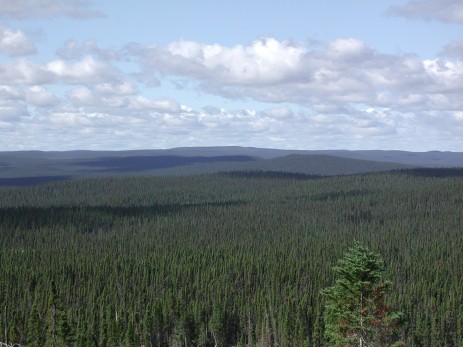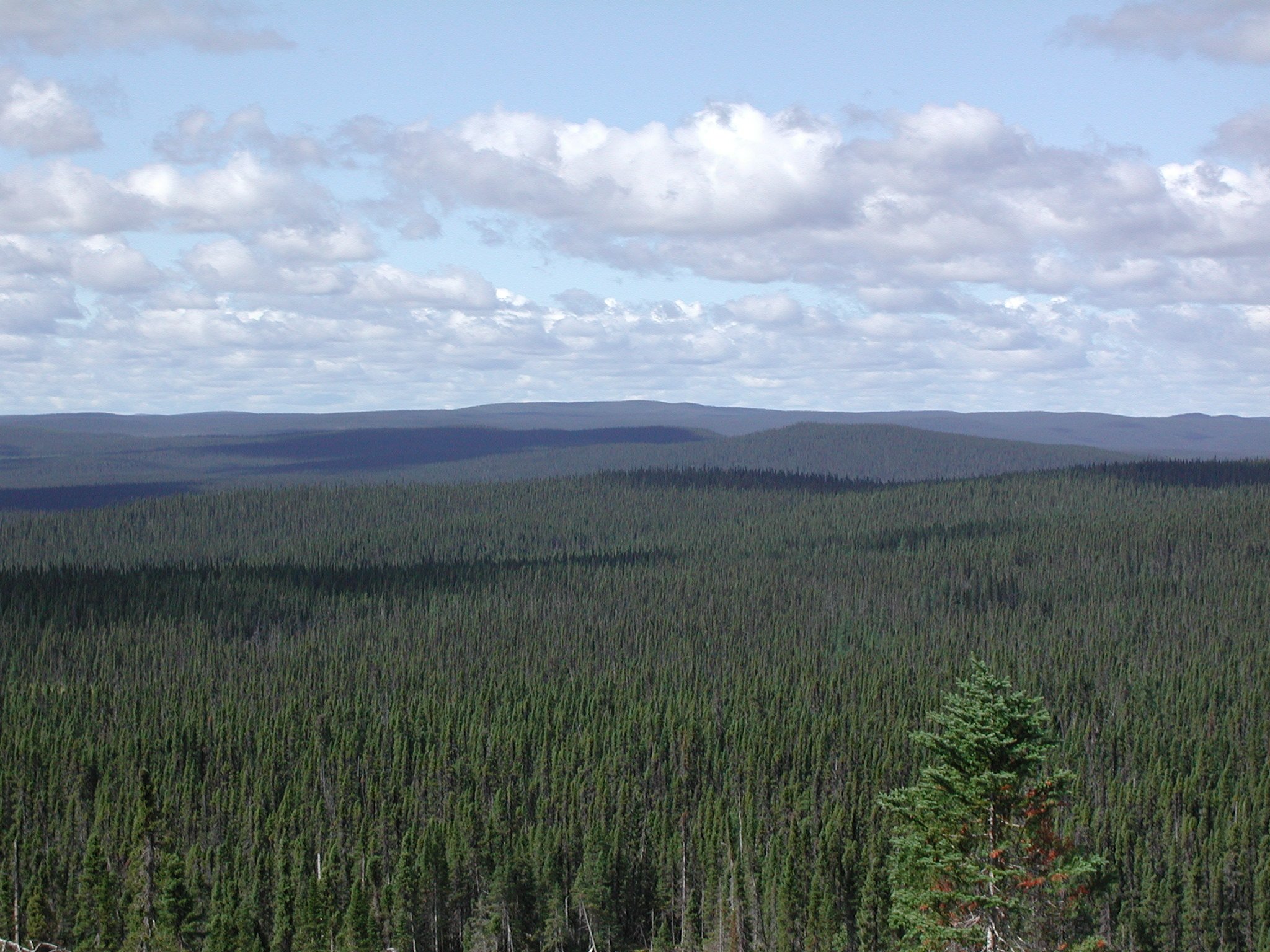 Boreal forest in Canada — safe from chainsaws for now.Photo: ForestEthicsMy first job in the social change movement was working for Ralph Nader. I was a lawyer, one of Nader’s Raiders. Not in the ’70s when it was cool and people actually knew what that was, but in the ’90s, when it was decidedly not cool and my mother was sure I had lost my mind. I left my high-paying K Street law firm to make less than half as much, traded my fancy office for a dingy cubical with walls made from boxes of books and stacks of old newspapers. What other evidence of my insanity did my mother, who grew up poor in upstate New York, need?
Boreal forest in Canada — safe from chainsaws for now.Photo: ForestEthicsMy first job in the social change movement was working for Ralph Nader. I was a lawyer, one of Nader’s Raiders. Not in the ’70s when it was cool and people actually knew what that was, but in the ’90s, when it was decidedly not cool and my mother was sure I had lost my mind. I left my high-paying K Street law firm to make less than half as much, traded my fancy office for a dingy cubical with walls made from boxes of books and stacks of old newspapers. What other evidence of my insanity did my mother, who grew up poor in upstate New York, need?
Like many Americans, I am not fond of large concentrations of unaccountable power. And in my work as a young lawyer, I was out to get The Man. For me, that meant big companies. They exert far too much control over our government, gamble our money (the “free market”), expect our tax dollars to bail them out (“too big to fail”), deceive us about the effects their products have on our health (are cell phones the new tobacco?), and mislead us with greenwash. I could go on …
All of which makes it more surprising that my work now, while still challenging big companies, involves an awful lot of collaborations with those same beasts.
This week ForestEthics, Canopy, Greenpeace Canada, and our allies, along with some of the biggest logging companies in the boreal forests of Canada, announced the largest conservation initiative in history. The stats are mind-boggling: nearly 70 million acres of woodland caribou habitat, an area the size of Colorado, off limits to logging for three years, while 175 million acres, an area the size of Texas, go into a comprehensive land-use planning process. That’s a fancy term meaning a process that determines which areas must be permanently protected, and which areas can be logged in a selective and sustainable manner.
This matters for a lot more than just caribou. These forests are so immense that the clean air and pure water they produce keep millions of people healthy and provide tens of thousands of jobs. Beyond that, the 186 billion tons of carbon stored in Canada’s boreal forests is equivalent to 27 years’ worth of global carbon emissions from the burning of fossil fuels. We need to keep as much of these forests standing as possible — for all of us.
We have a truce with the logging industry, but neither side of this agreement makes the final decisions here: that is up to First Nations governments and provincial governments in Canada. In other words, our truce is subservient to the aboriginal and provincial authorities that control the actual land base. This is a key underpinning of the accord.
How did we get to this point?
Many players have toiled away for many years to research the science, create the funding, and support seemingly endless negotiations that were often held together by just a thread. Our part in creating this historic initiative has been bringing the power of the U.S. marketplace to the table. And we’ve done that side-by-side with Canopy and Greenpeace Canada.
With half of Canada’s boreal forests being logged to make paper, and much of that going to feed the U.S.’s insatiable demand, pressuring big paper consumers like Victoria’s Secret, Scholastic, and Kimberly-Clark to steer clear of the boreal and demand greener options was critical. In fact, that pressure was one of the primary drivers of this agreement.
Canopy, for example, has led a quiet revolution in book, magazine, and newspaper publishing by greening some of the largest-selling publishers and titles in the world, including the Harry Potter juggernaut. Greenpeace Canada waged a hard-hitting campaign against Kimberly-Clark for using old growth boreal trees to make toilet paper — and more importantly, they both forged a solution to their conflict with a better balance between environmental and financial matters. At ForestEthics, we have been working not only to shift Victoria Secret’s massive paper purchases away from boreal caribou habitat, but also doing the same with some of the largest buyers of paper in the world: Staples, Office Depot, FedEx Office, and literally dozens of other Fortune 500 companies.
All of this pressure — hundreds of millions of dollars of purchasing power — over the course of many years was aimed at creating a space for a real negotiation. And two years ago it started: The leader of the Forest Products Association of Canada basically asked then ForestEthics Campaign Director Tzeporah Berman what it would take for the market pressure to go away. Our reply: A lot. So it began.
And still, even after this deal has been reached, we’re at the beginning, not the end. The boreal is not “saved,” but there is a framework in place that may just succeed in protecting some of the most critical areas of this globally important forest. While outreach began with First Nations and provincial governments months ago, a lot of work is needed to collaborate on land-use decisions for this agreement to move forward.
Our work on this issue started in 2001. Without some of the largest companies in the world lending their purchasing power toward a greener direction for the boreal, we would not be here today. Quite a few of these companies had to be pressured into moving more quickly — but to their credit, they were able to move past their conflicts with activist groups toward real collaboration. And many more companies wanted to be part of this change from the beginning, and used their market power to great effect.
So here I am, 15 years after signing up as one of Nader’s Raiders, and I am still swimming in a sea of corporate power. I have come to better understand the people at these companies. It shouldn’t have been a shocking discovery, but I learned that we share some key core values. I didn’t believe that back in 1995.
I know there will be challenges reaching our goals, and much of this depends upon decisions that will ultimately be made by aboriginal and provincial governments. And the pressure from big paper-buying companies wanting green products that helped get us to this point will be even more essential to getting this deal done.
Corporate power is still all too often used to benefit the few at the expense of the rest of us. But it is nice to know that at times it can be applied toward the greater good.



